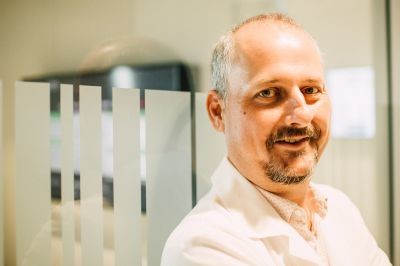New DNA sequencer installed at Harry Perkins Institute

The Harry Perkins Institute of Medical Research (HPIMR) has installed an Illumina NovaSeq 6000 DNA sequencer as part of the Australian Cancer Research Foundation (ACRF) Centre for Advanced Cancer Genomics.
The sequencer will be housed at the single-cell sequencing facility being led by Professor Alistair Forrest at the HPIMR, on behalf of a consortium of cancer researchers from across Perth.
Last year, HPIMR was awarded a $1.75m grant to establish the ACRF Centre for Advanced Cancer Genomics. The DNA sequencer is the second of three pieces of equipment at the centre.
The equipment will allow researchers to analyse thousands of cells from hundreds of tumours and examine billions of genetic sequences to determine the genetic make-up of each tumour and provide new insights into how cancer cells evolve and interact with normal cells.
A consortium of cancer researchers and clinicians across Perth led by Professor Forrest, who heads the Systems Biology and Genomics Laboratory at the Harry Perkins Institute of Medical Research, was also awarded $3.75m by the Cancer Research Trust to build a comprehensive atlas of the cell types that make up cancer tumours.
“The new equipment funded by the ACRF will make it quicker and less costly to generate large amounts of sequence data, which means the tumours of more patients will be able to be analysed,” Professor Forrest said.
“The low survival rates for some cancers, such as mesothelioma, ovarian and pancreatic cancers, highlight the need for these new approaches to understand and target cancer better.
“Using advanced single cell profiling technologies, we will survey the cell types, the genes turned on and off in each cell and mutations contained in each patient’s tumour.
“Studying tumours at the single cell level provides opportunities to identify novel biomarkers, predict response rates to drugs and provide a better understanding of cancer, which ultimately will lead to new treatments.
“These technologies are the next wave of genomics and we have a once-in-a-decade opportunity to establish them and remain at the leading edge,” Professor Forrest said.
Blood-based biomarker can detect sleep deprivation
The biomarker detected whether individuals had been awake for 24 hours with a 99.2% probability...
Epigenetic signature helps to diagnose rare breast tumour
The current way of diagnosing phyllodes tumours is to analyse their cellular features under a...
New instrument measures cardiovascular disease biomarkers
CVD-21 enables a 'liquid cardiovascular biopsy' for quantification of multiple...







